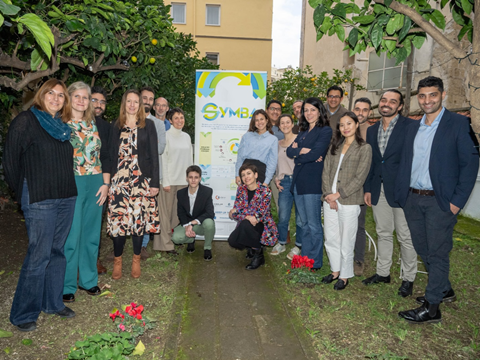
AIMPLAS has announced its participation in the EU-funded SYMBA project in hopes of using AI-driven solutions to promote circular economy principles within the biobased industrial ecosystem.
Under the banner of “securing local supply chains via the development of new methods to assess the circularity and symbiosis of the biobased industrial ecosystem,” the SYMBA project aims to change industrial practices by promoting two-way relationships within bio-based ecosystems.
Its focus is the development of a unique Industrial Symbiosis (IS) methodology specifically tailored to local and regional biobased ecosystems. SYMBA plans to implement a user-friendly and accessible AI database suggesting regional IS innovative processes to create zero-waste value chains – a bid to ensure more local supply chains, better distribution of economic and social benefits among the stakeholders, and an increase in the economic value of final products.
The project, which officially began in January, hopes to pave the way for zero-waste value chains and contribute to a more sustainable future for Europe.
The SYMBA project is supported by a consortium comprising organizations including Novamont, Climate-KIC, CIRCE, Centexbel, ICLEI Europe, Bio-Based Europe Pilot Plant, and Cetaqua, with ENCO at the helm.
The partnership brings together five EU countries (Italy, Spain, Belgium, The Netherlands, and Germany) to consolidate the maximum outreach of the initiative. Through the involvement of different industrial sectors – agri-food (Novamont); plastic packaging (AIMPLAS); wastewater (Cetaqua); textile (Centexbel); and waste valorization (Bio-Based Europe Pilot Plant) – SYMBA aims to demonstrate how to shift from a linear to a circular economy, contributing to delivering biobased solutions with reduced environmental impacts on soil, water and air quality.
AIMPLAS recently announced its use of mechanochemical techniques to convert plant waste into packaging and adhesives in an effort to prevent harmful substances from entering landfill or the environment.
In February, the EU’s Just Transition Fund awarded €5 million to Itero Technologies in order to contribute to its chemical recycling demonstration plant for mixed plastic waste at Brightlands Chemelot Campus. Using its patented technology, Itero recycles mixed plastic waste into high-value chemical products, which can then be used to produce new plastics.
Earlier this month, Geoffrey Tarret, software solutions sales engineer at Markem-Imaje, spoke to us about the new EU rules around wine labelling, which came into effect in December 2023. Now requiring all wines made or sold in the EU to have all their ingredients and nutritional information listed on the bottle, we asked him about the best ways to comply with these laws.
If you liked this story, you might also enjoy:
Report: The ultimate guide to global plastic sustainability regulation
The Brief: Oxo-(bio)degradables: the who, what, and why of breaking down fossil-based plastics
Sustainable Packaging Summit: How Kraft-Heinz uses collaboration to drive innovation
The Brief: Using ocean-bound plastic in packaging – how, why and should we?














No comments yet